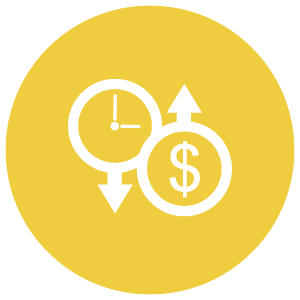- Home
- Mental Health
- PTSD & Trauma Treatment
Residential PTSD Treatment in Thailand:
Find the Trauma Healing You Need to Move On
PTSD (post-traumatic stress disorder) and trauma survivors describe their experiences this way:
“It’s constantly looking over your shoulder and having difficulty trusting people.”
“(It’s a) constant feeling of dread and constantly feeling overwhelmed by everything.”
“It’s like you are in a bubble that makes you go in slow motion, while the rest of the world is in fast forward.”
Does this sound familiar to you? If so, you are not alone. According to the World Health Organisation, 70 percent of people experience lifetime traumas. Sometimes, the effects of emotional trauma linger long after the incident or experience, and can interfere with your ability to live a normal life.
But fortunately, this is by no means a life sentence. By learning healthy ways of coping with trauma and PTSD, and with strong emotional support, you can break free of debilitating symptoms and feel normal, healthy and happy. This is the goal of our PTSD treatment Thailand programme
Signs and Symptoms of Trauma
Seriously distressing or life-threatening events like car accidents, violence and sexual abuse can result in psychological trauma. Symptoms of trauma include:
- Shock or denial immediately following the event
- Anxiety
- Anger
- Depression
- Relationship problems
- Impaired performance at work
- Self-esteem issues
Sometimes the effects of trauma eventually fade over time, but sometimes they persist and require professional treatment. Some people develop post-traumatic stress disorder as a result of trauma.
Signs and Symptoms of PTSD
- Hyperarousal and hypervigilance
- Sleep disruption and insomnia
- Distorted threat perception
- Increased fearfulness
- Decrease in positive emotions
- Irritability and mood swings
- Feelings of sadness, numbness or disconnectedness
- Social withdrawal
- Loss of focus
- Shame and guilt
- Fatigue
- Physical pains
PTSD sufferers can be emotionally triggered by anything that reminds them of the event that caused their trauma. They may also have a hard time controlling their reactions when triggered, as well as their impulsive behaviours, which can lead to co-occurring addiction.
Why The Dawn Is Your Best Choice for Trauma and PTSD Treatment In Thailand
The Dawn Thailand PTSD Retreat is highly specialised in trauma: our fully certified clinical team holds a Master’s degree in Psychology and has decades of experience in treating all forms of trauma and PTSD. One of few rehabs with this speciality, we are the region’s leading trauma and EMDR specialist. Our own residential trauma treatment programme is delivered by a kind, caring team of clinical psychologists and healing arts therapists who take the time to get to know you and see your whole picture.
GET HELP WITH TRAUMA TREATMENT THAILAND
Dual Diagnosis: Trauma and Substance Abuse
Post-traumatic stress disorder also increases the likelihood of high-risk behaviours such as alcoholism, drug abuse, sex addiction and food addiction. Many people who suffer the effects of trauma end up self-medicating: attempting to escape their emotions through alcohol or drugs. About 40 percent of PTSD sufferers have been dependent on alcohol at some point in their lives; about 31 percent have abused drugs. PTSD often co-occurs with addiction: more than half of those who seek treatment for addiction also suffer from trauma.
Why The Dawn’s Residential Trauma Treatment is the Most Effective Option
When healing from trauma, it is important to do so in a safe space to avoid re-traumatisation. Our private, peaceful centre is located in the quiet countryside of Chiang Mai in Northern Thailand, where you can enjoy restorative walks through our lush gardens and calming meditation by the river.
Getting away from your triggers, attending groups with supportive peers and talking about your shared experiences is extremely beneficial to your healing process. Once you see that you are not alone in your experience, you’ll feel far less lonely – and far more powerful over your trauma.
How Our PTSD and Inpatient Trauma Treatment Works
Here in our community-based environment, you will never be judged and you’ll always feel safe to work through your issues with the help of those around you. Because of our low staff-to-client ratio, you will be highly supported and receive plenty of one-on-one attention throughout your post-traumatic stress disorder treatment in Thailand. Our entire team is equipped to support trauma clients, and all trauma therapists are certified in the most widely endorsed trauma therapies. Our trauma treatment programme incorporates:
TRAUMA-FOCUSED COGNITIVE BEHAVIOURAL THERAPY (TF-CBT)
You will receive two individual counselling sessions each week with a trauma-trained therapist. These sessions include TF-CBT to address maladaptive thinking associated with traumatic events and allow effective cognitive restructuring.
TRAUMA RESILIENCY MODEL (TRM) SKILLS BUILDING
TRM is a body-based somatic therapy that aims to reset your nervous system, which has been significantly disrupted by trauma. You will learn to observe and track your nervous system responses when you feel stressed, anxious or depressed. We also teach you mindfulness-based skills to bring yourself back into balance whenever you need.
POST-INDUCTION THERAPY (PIT)
Pia Mellody’s Post-Induction Therapy (PIT), used at The Meadows, is based on the idea that all maladaptive behaviours are rooted in the events we experience as children. PIT helps to uncover and heal the childhood traumas lying at the core of your current issues, so you can reverse their impact.
EYE MOVEMENT DESENSITISATION AND REPROCESSING (EMDR)
EMDR is designed to help you heal from symptoms linked with traumatic memories through a physiological process that allows you to view past events in a less traumatic way. It uses bilateral eye movements, which aid in moving painful memories from the forefront of your mind into your long-term memory. Just eight sessions of EMDR have been shown to dramatically reduce symptoms of post-traumatic stress disorder.
TRAUMA/TENSION RELEASING EXERCISE (TRE) YOGA
TRE yoga helps release the tension associated with trauma and PTSD by using exercises to release muscles that are triggered during the fight-or-flight response and tend to stay contracted until the initial trauma has been resolved.
HOLISTIC WELLNESS THERAPIES
We offer a variety of alternative treatments to enhance your therapy experience and help you heal as a whole. These include:
- Mindfulness meditation
- Massage therapy
- Yoga
- Fitness exercise
Complex PTSD Treatment Centre in Thailand:
Heal in a Warm and Tranquil Destination
Northern Thailand is known for its peaceful, easy-going culture, warm, sunny weather and mountainous jungles. In this environment, you will feel thoroughly nourished and ready to make the cognitive changes required to move on from your trauma. You will also be removed from the places and things that normally trigger you into re-experiencing a traumatic event, allowing you to safely heal.
At our peaceful facility on the banks of the Ping River, you will find that the fresh air and beauty of the countryside help to ground your spirit and clear your mind, helping you feel positive and prepared for the important work of getting well.

ADMISSION PROCESS
We aim to make our admissions process as simple and clear as possible. Our dedicated team is always here to help 24/7.

DUAL DIAGNOSIS TREATMENT
Our PTSD retreat offers integrated treatment for those struggling with combined trauma and addiction or substance abuse issues.

TREATMENT COST
Our all-inclusive programme costs less than half the price of similar premium-standard treatment centres in the West.
A Day at The Dawn's Thailand Trauma Treatment Retreat
We believe in healing the whole person. You will receive intensive psychotherapy, but meditation, relaxation, and recreational activities will all play an important therapeutic role in your treatment. Here’s an example of what a typical day looks like at The Dawn:
| 07:00: | Group Exercise |
|---|---|
| 08:00: | Breakfast |
| 09:30: | Group Process |
| 11:00: | Group Therapy |
| 12:00: | Lunch |
| 13:00: | Focus Group |
| 14:30: | Individual Counselling, Massage, Fitness Training, Mindfulness Meditation or TMS (optional) |
| 18:00: | Dinner |
| 19:00: | Group Activity, Offsite NA / AA meeting |
| 20:30: | Rest & Relaxation |
| 22:00: | Bedtime |
Learn more about:
Do You Have a Saviour Complex? Here’s What to Do Next
When helping others is hurting yourself, it’s time to ask what is really driving your need to step in. Understanding...
Read More »Understanding the Trauma of Childhood Sexual Abuse
Childhood sexual abuse is a major trauma with serious psychological and physical consequences that can last long into adulthood. Understanding...
Read More »Why Facing Your Trauma is the Next Step Towards Healing
Few people want to relive the pain of old traumas, and yet allowing the brain time to process these feelings...
Read More »






